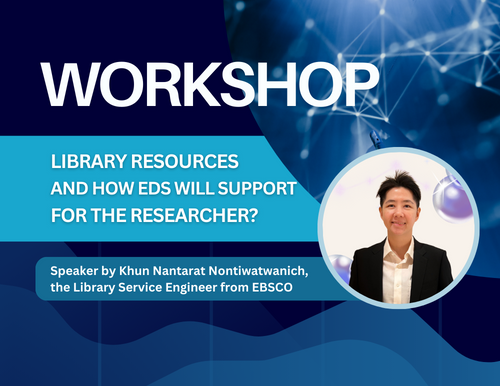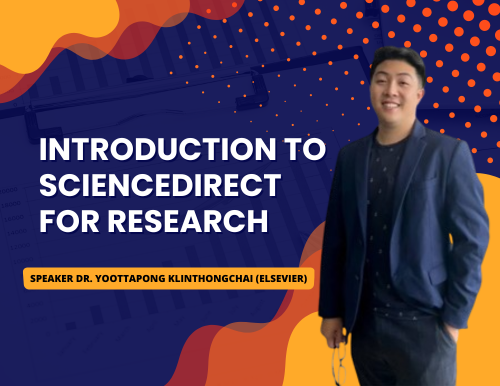The EBSCO database involves searching and accessing high-quality academic articles and research. The steps include targeted searching, reading, downloading, and saving desired articles in the system. Filters and advanced search functions help narrow down results to better match specific needs.
การสร้างสรรค์ที่เกิดขึ้นจากความหลงใหลหรือแรงบันดาลใจภายในตัวบุคคล เป็นการนำความรักในสิ่งที่ทำมาผสมผสานกับความคิดสร้างสรรค์ ทำให้เกิดผลงานหรือแนวคิดที่ไม่ซ้ำใครและมีความเป็นตัวเอง โดย อ.สราวุฒิ สำเนียงดี
Introducing English eBooks website. Find and choose your favorite books with ease at your fingertips. You can instantly access your favorite books. By Library and Learning Space
Lao economy, Lao job market & labor law, AEC and labor mobility, demand for talents, get yourself ready and about 108JOB By Keovisouk Dalasane
Lao economy, Lao job market & labor law, AEC and labor mobility, demand for talents, get yourself ready and about 108JOB By Keovisouk Dalasane
Lao economy, Lao job market & labor law, AEC and labor mobility, demand for talents, get yourself ready and about 108JOB By Keovisouk Dalasane
This workshop covers advanced searching and the more sophisticated of databases in the EBSCOhost platform. Library Resources, What is EDS and how it works?, Techniques in “Feature & Setting”, How EDS support the researcher. By Nantarat Nontiwatwanich on January 20, 2024
This is a method for researching information related to the ScienceDirect database, which covers research in fields such as business management, accounting, computer science, scientific decision-making, economics and finance, engineering, psychology, and social sciences. on December 9, 2023
การติดอาวุธเสริมทักษะชีวิตเตรียมความพร้อมก่อนลงสนามจริงเกี่ยวกับการออกแบบ Portfolio ให้มีความโดดเด่นมีเอกลักษณ์ การเลือกใช้แบบอักษรที่เหมาะสม การจัดวางเนื้อหาที่เป็นระเบียบ การใช้สีหรือกราฟิกให้สร้างความประทับใจ การเลือกข้อมูลที่สำคัญ และการจัดระบบข้อมูลใน Portfolio เพื่อให้เน้นความสำคัญ ความสามารถ และประสบการณ์
Lecture ICA675 Corporate Communication Policy
By Dr.Somchat Visitchaichan
Lecture Date:
Sunday 16 February 2020
1.00 p.m. - 6.30 p.m.
There are 3 parts.







